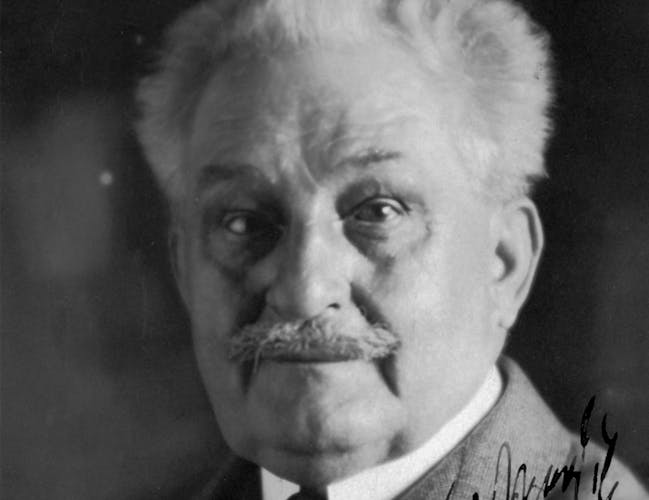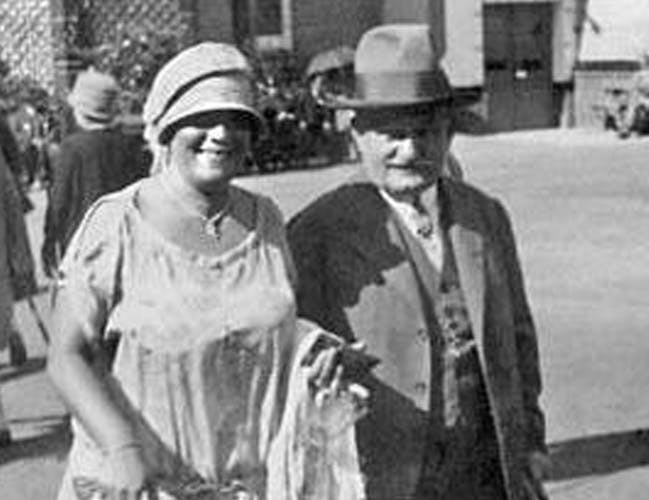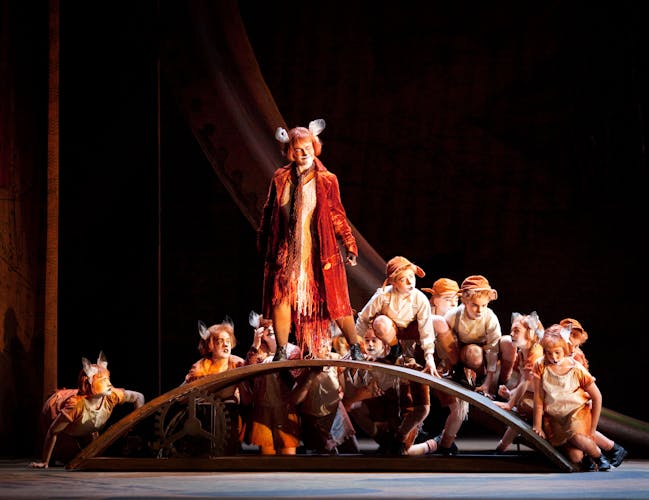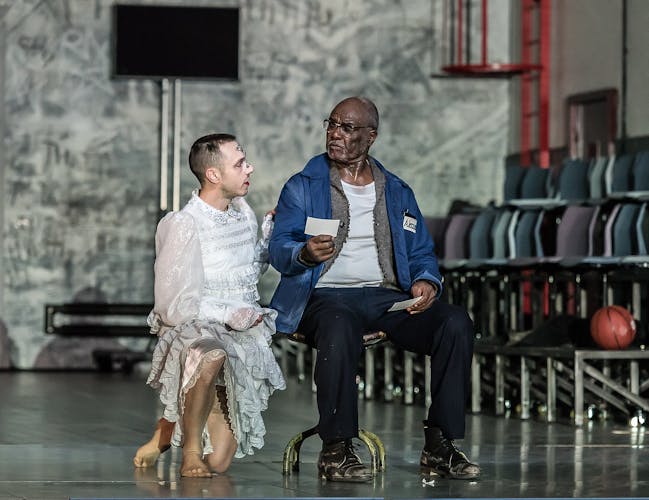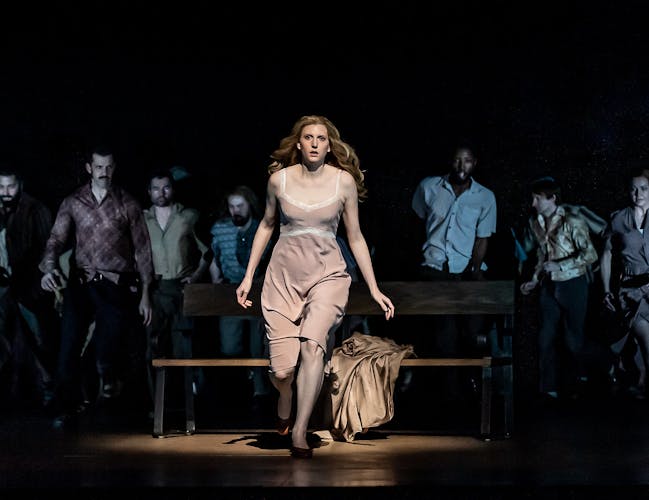Creative Spotlight: Leoš Janáček
Read more about the life and work of Leoš Janáček, a Czech composer celebrated for his dynamic and emotionally resonant music.
Leoš Janáček (1854–1928) was a Czech composer known for his distinctive and innovative style, deeply rooted in Moravian and Slavic folk music. He is celebrated for his operas, orchestral works and chamber music, which often convey deep emotional intensity and a unique sense of rhythm and harmony specific to the composer’s own culture.
Personal Life
Janáček was born on July 3, 1854, in Hukvaldy, Moravia (then part of the Austrian Empire, now in the Czech Republic). He was the ninth of 13 children in a modest family, and his father was a schoolmaster and church organist, which influenced Janáček’s early exposure to music. He studied at the Augustinian Abbey in Brno, where he sang as a choirboy, before later pursuing a formal musical education in Prague, Leipzig and Vienna – despite his studies being often interrupted by financial constraints.
Janáček initially worked as a teacher, organist and choir director in Brno. His early compositions included choral works a folk song arrangements, and he was deeply interested in Moravian folk music, transcribing and incorporating its rhythms and melodies into his works. In 1881, in line with his teaching interests, Janáček co-founded the Brno Organ School (later the Brno Conservatory), where he trained many young musicians. That same year he married Zdenka Schulzová. Their relationship was tumultuous and marked by personal tragedies, including the death of their two children.
Despite his various compositions, Janáček did not make a name for himself as a composer until the premiere of his opera Jenůfa (1904), which marked his first major success. Although it had an initially lukewarm reception, Jenůfa became a cornerstone of the composer’s reputation, and he dedicated the work to the memory of his daughter Olga (d. 1903) – as he also did in his choral composition the Elegy on the Death of Daughter Olga the year she died. Janáček's mature works gained recognition only in the last two decades of his life, as he began producing masterpieces like Katya Kabanova (1921), The Cunning Little Vixen (1924), The Makropulos Affair (1926) and From the House of the Dead (1928).
In 1917, at 63, Janáček developed a passionate though platonic relationship with Kamila Stösslová, a married woman nearly 40 years his junior whom he met while vacationing in the spa town of Luhačovice in Moravia. Despite the age gap and their respective marriages – plus Stösslová’s more reserved feelings towards the enamoured composer – their relationship became deeply significant for Janáček's emotional and creative life. Between 1917 and his death in 1928, he wrote over 700 letters to Stösslová, pouring out his thoughts, feelings and dreams, and often speaking of her as his muse. Indeed, Stösslová inspired many of his late works including his prolific String Quartet No. 2 (‘Intimate Letters’), composed in 1928, the year of his death, and operas like The Makropulos Affair and From the House of the Dead, which reflect themes of unattainable love, freedom and human suffering.
On August 12, 1928, Janáček died in Ostrava, Czechoslovakia, from pneumonia. He was buried in Brno, the city where he spent much of his life.
Operatic Works
Janáček’s compositions are strikingly modern and emotionally rich, offering a distinctive voice in 20th-century music that continues to captivate audiences worldwide.
His operas are perhaps his most celebrated works. He wrote five in total: Jenůfa (1904), Katya Kabanova (1921), The Cunning Little Vixen (1924), The Makropulos Affair (1926) (also known as The Makropulos Case) and From the House of the Dead (1928). Often called the ‘Moravian National Opera,’ Jenůfa was the composer’s international breakthrough. The work integrates folk rhythms and speech melodies – melodic lines that mimic the natural inflections of spoken language – into its score, giving the opera a unique cultural texture and contributing to its intense realism, which makes the emotions of each character feel vivid and immediate.
Aside from his operas, Janáček also composed well-known choral and vocal works, including his intimate and confessional song cycle for tenor, alto and piano The Diary of One Who Disappeared (1919), and his vibrant Glagolitic Mass (1926), which features a soaring tenor solo and jubilant organ solo.
Other works include his orchestral compositions Sinfonietta (1926), a celebration of Brno and Moravian life, and Tara Bulba (1918), a rhapsodic tone poem based on a Nikolai Gogol novella; his chamber music String Quartet no.1, ‘Kreutzer Sonata’ (1923), inspired by Tolstoy’s novella of the same name on jealousy and passion, and String Quartet no. 2, ‘Intimate Letters’ (1928), a raw and direct musical expression of his feelings for his young muse Kamila Stösslová; and his piano compositions On an Overgrown Path (1901-1911), a nostalgic reflection on childhood and loss, and the melancholic In the Mists (1912).
Gallery
Watch more
- Opera and music
Jenůfa (2021)
Claus Guth's staging of Janácek's opera explores the lives of two courageous women struggling for fulfilment in a small
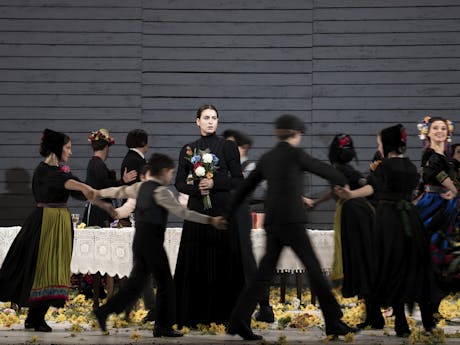
Royal Opera House Covent Garden Foundation, a charitable company limited by guarantee incorporated in England and Wales (Company number 480523) Charity Registered (Number 211775)

